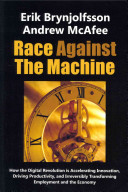Innovation Means Recombination
...the process of innovation often relies heavily on the combining and recombining of previous innovations, the broader and deeper the pool of accessible ideas and individuals, the more opportunities there are for innovation.
We are in no danger of running out of new combinations to try. Even if technology froze today, we have more possible ways of configuring the different applications, machines, tasks, and distribution channels to create new processes and products than we could ever exhaust.
Here’s a simple proof: suppose the people in a small company write down their work tasks— one task per card. If there were only 52 tasks in the company, as many as in a standard deck of cards, then there would be 52! different ways to arrange these tasks.8 This is far more than the number of grains of rice on the second 32 squares of a chessboard or even a second or third full chessboard. Combinatorial explosion is one of the few mathematical functions that outgrows an exponential trend. And that means that combinatorial innovation is the best way for human ingenuity to stay in the race with Moore’s Law.
Notes:
Take innovations and recombine them to produce new innovations. We have so many innovations today that the potential in immense.
Folksonomies: innovation combinations
Taxonomies:
/sports/running and jogging (0.498580)
/technology and computing (0.417409)
/technology and computing/technological innovation (0.240801)
Keywords:
Recombination Take innovations (0.994707 (positive:0.336488)), new innovations (0.935386 (positive:0.336488)), previous innovations (0.906306 (neutral:0.000000)), combinatorial innovation (0.883376 (positive:0.844551)), technology froze (0.816348 (negative:-0.385058)), Combinatorial explosion (0.781431 (neutral:0.000000)), new combinations (0.777363 (negative:-0.366481)), accessible ideas (0.773857 (positive:0.622826)), human ingenuity (0.764764 (positive:0.844551)), exponential trend (0.763664 (neutral:0.000000)), distribution channels (0.761398 (positive:0.326113)), simple proof (0.756375 (neutral:0.000000)), work tasks— (0.745616 (negative:-0.634995)), standard deck (0.744202 (neutral:0.000000)), possible ways (0.743829 (neutral:0.000000)), different applications (0.743028 (neutral:0.000000)), new processes (0.739306 (positive:0.326113)), best way (0.735939 (positive:0.844551)), small company (0.733811 (negative:-0.634995)), mathematical functions (0.725603 (neutral:0.000000)), different ways (0.711680 (neutral:0.000000)), chessboard (0.621063 (neutral:0.000000)), immense (0.514223 (positive:0.592738)), danger (0.482951 (negative:-0.366481)), grains (0.474824 (neutral:0.000000)), squares (0.468490 (neutral:0.000000)), potential (0.467194 (positive:0.592738)), pool (0.463605 (positive:0.622826)), individuals (0.463459 (positive:0.622826)), opportunities (0.463343 (neutral:0.000000))
Entities:
Moore:Person (0.800927 (positive:0.844551))
Concepts:
Ingenuity (0.977898): dbpedia | freebase
Mathematics (0.905071): dbpedia | freebase | opencyc
Innovation (0.815940): dbpedia | freebase
Playing card (0.729162): dbpedia | freebase | opencyc
Technology (0.628111): dbpedia | freebase
Set theory (0.604809): dbpedia | freebase | opencyc
Playing cards (0.552471): dbpedia
Task (0.532620): dbpedia





